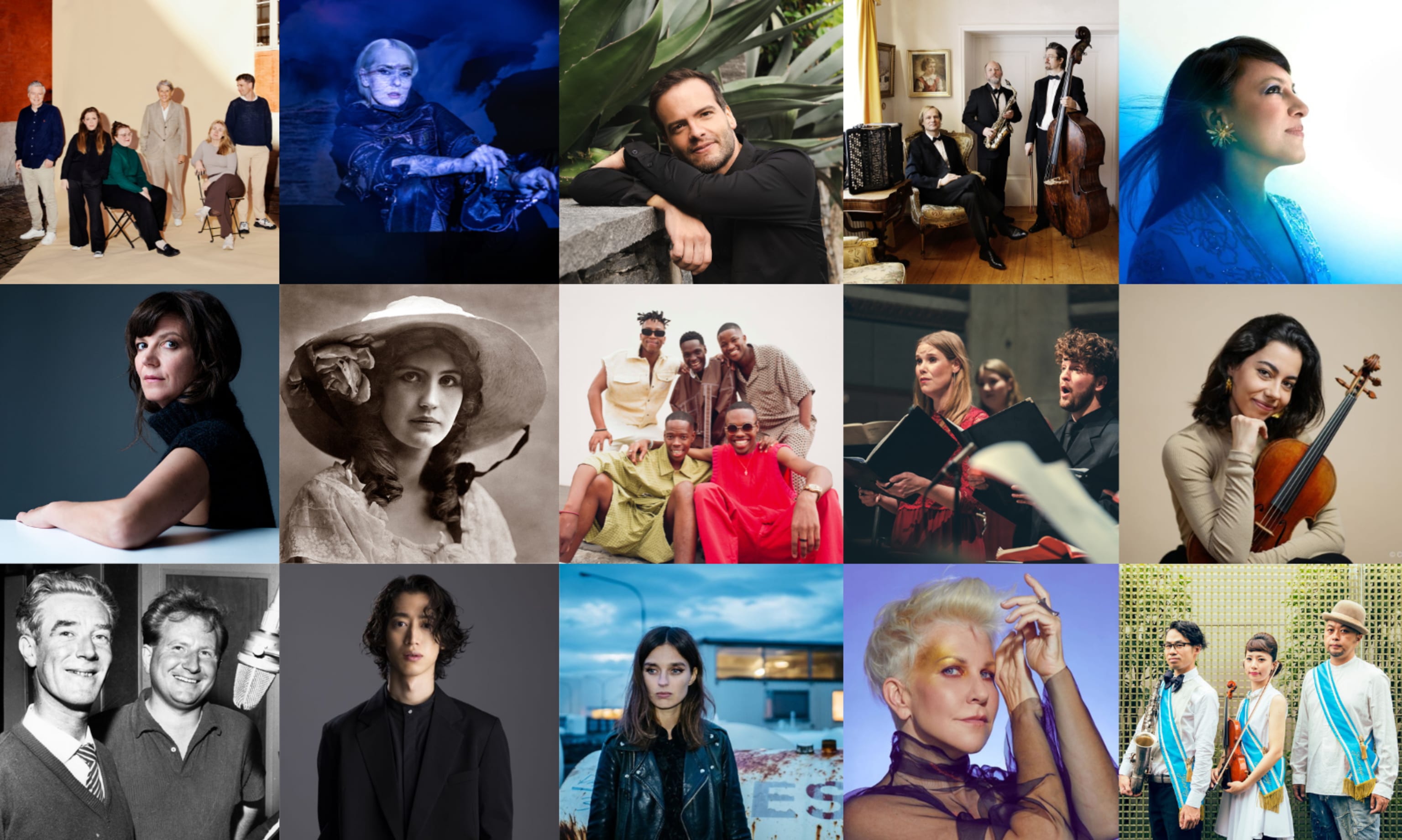Focus on concert theatre
- Home
- Festival
- 2020-and-before
- Articles
- Focus On Concert Theatre
February 22, 2011
Bergen International Festival has engaged composer Henrik Hellstenius as curator for a series of concert performances at this year’s festival. This unique project involving more than 30 musicians will explore the dividing line between music and theatre. The series of concerts, which have been given the title ‘The Theatre of the Ear’, is Bergen International Festival’s biggest ever venture into the world of contemporary music.
At four concerts, Hellstenius will put his own and others’ music into thematic contexts that involve a meeting between music and a theatrical element in the form of video, text, light or movement. At the first concert on 26 May, for example, the concert hall will be covered in grass, and the audience will be invited to recline in deck chairs and on carpets.
’The aim of the concerts is to explore the dividing line between a musical experience and a theatrical experience. I call them concert performances or staged concerts,’ says Hellstenius, who has worked on music for the theatre, film and ballet as well as chamber music, orchestral works and electro-acoustic pieces.
He has previously curated two different concerts at the Ultima Oslo Contemporary Music Festival featuring the Norwegian Broadcasting Orchestra and the Norwegian Academy of Music’s Symphony Orchestra.
‘Working on a more conceptual basis with such concerts is an incredibly challenging form that entails new and unforeseen possibilities. If you compare it with what has happened in the formal context in relation to the theatre and the visual arts, it must be said that exploring the concert as a form has a huge potential that surprisingly few people seem willing to try. Our orchestras in particular are not very innovative, but even concerts that feature contemporary music seem to be comfortable with conventional thinking about the concert as an art form,’ says Hellstenius.
Expressing something universal
It is usually said that music appeals to aspects of ourselves that other art forms cannot reach. The intention behind these staged concerts is to try to produce concerts that include this aspect of the musical experience while at the same time expressing something universal, something beyond the bounds of the music itself.
‘The goal is to expand music’s possibilities to create experience and give rise to insight,’ Hellstenius explains.
He has engaged a number of musicians and plans to present six of his own compositions as well as music by composers he is particularly interested in. The concerts will feature compositions by Carola Bauckholdt, Gérard Grisey, Klaus Lang, Claude Vivier, Luigi Nno, Franz Schubert and Dimitri Sjostakovitisj. Together with Hellstenius’s own work, they address themes such as nature, death, relationships and stories. Hellstenius’s own works include two brand new pieces that will be premiered at these concerts.
A unique experience
The list of ensembles includes Dans les Arbres, Ning, Cikada and Ensemble Ernst, while the musicians include Dan Styffe, Peter Herresthal, Hans Kristian Kjos Sørensen and singers Unni Løvlid and Tora Augestad. They are all performers that Hellstenius knows well.
‘The musicians are very involved in the project and, together with video artist and composer Ignas Krunglevicius, scenographer Nia Demerell and director Jonas Corell Petersen, they will all contribute to creating these four “macro-compositions” – consisting of music, space, text, light, movement and video,’ says Hellstenius.
The point of departure for the first concert is how close the sounds of nature are to composed and improvised music.
‘The evening will be a unique experience – a concert installation that takes the audience through 24 hours of sound. The sounds of animals and birds in the Brazilian jungle, European cows, the sound of nature in the Norwegian mountains, and a small fishing village wakening to life gradually merge with acoustic compositions and improvisations,’ Hellstenius tells us.
Death and group therapy
Two days later, it is death that is in focus.
‘Artists and composers return to death again and again, reflecting on and portraying it and our conceptions of it. This concert brings together four composers’ musical reflections on death in different forms, ranging from death in its concrete form to the “little death” experienced by people who, while still alive, are not truly present in their own lives.’ At the third concert, a mixture of videos and instrumental music will provide an alternative perspective on interpersonal relationships. Marital rows and family therapy are among the elements included.
‘At the last concert, we return to what was perhaps music’s original function – to tell stories. We sit the audience down with the musicians, and various stories will be told over the table – old and new ones, visual and musical ones.’






